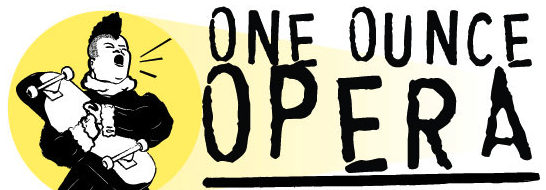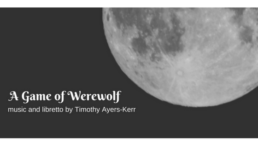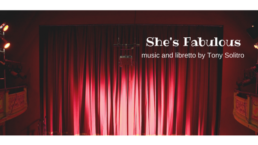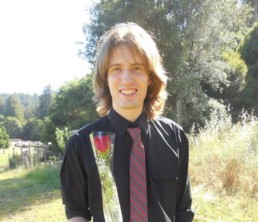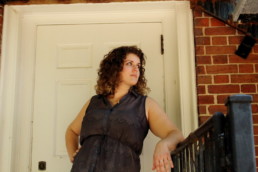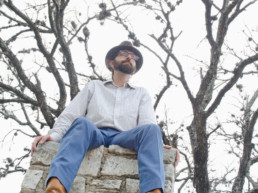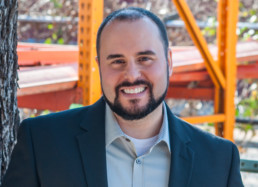FSOO Composer Spotlight: Timothy Ayres-Kerr and "A Game of Werewolf"
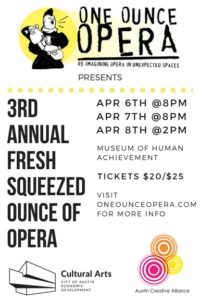 ...and what a game it will be! Composer/librettist Timothy Ayres-Kerr takes singers Angela Irving, Andy Fleming, Dalton Flake, Jake Jacobsen, Jenny Ohrstrom, and Patricia Combs on a fast-paced journey of who-done-it, in the Fresh Squeezed Ounce of Opera 2018's winning work A Game of Werewolf. The cast had these questions for Tim:
...and what a game it will be! Composer/librettist Timothy Ayres-Kerr takes singers Angela Irving, Andy Fleming, Dalton Flake, Jake Jacobsen, Jenny Ohrstrom, and Patricia Combs on a fast-paced journey of who-done-it, in the Fresh Squeezed Ounce of Opera 2018's winning work A Game of Werewolf. The cast had these questions for Tim:
1. We noticed that what drives the villagers most is fear. Were you inspired by our current political climate to write this piece?
The actual game (Werewolf / mafia ) is all about suspicion and persuading the masses to trust and support you against someone else. The phycological and political issues it’s gameplay builds on are such real world elements that it would be impossible for a dramatization of it to not relate. I painstakingly tried to avoid taking a stance that too easily aligned with either major “Sides” of current politics. Instead, my aim is that this piece will challenge everyone of every ideology to question their belief systems and dogmas.
2. How long did it take you to write the piece? Did you workshop it with singers as part of the process?
I began work on GOW in June of 2017 working exclusively on the libretto. It was mostly finished by the end of that month. July and august I went about setting it. It was in a complete form by September when rehearsals started. I'm a singer first, and so my approach to writing was largely based on me singing something, recording it as a voice memo, then later transcribing it. With every single phrase, I would mull over it for about 10/15 minutes (usually while doing some other chore) and if i couldn't commit it to memory and sing it, I would make significant edits. The work was performed several times by my own company as a curtain raiser for WholeTone Opera's own Werewolf opera and you could consider that a workshop, as so much was learned about the piece in that process.
3. This opera reminds a lot of us of Gilbert & Sullivan, but gone dark. Have you drawn inspiration from G&S? What other composers do you draw inspiration from?
Most of my stage experience to date is G&S and I the influence is unshakable. I consider Arthur Sullivan to be one of the greatest setters of intelligible English text, and definitely tried to emulate him. The way certain characters make light of gave occurrences reads to me incredibly Victorian.
I listen to system of a down on occasion, and imagined some of that tonality for Gadruna's first lines of music (weird i know lol). The aggressive rhythmic figures they use really blow my mind. I was also pulling inspiration from an obscure music hall form I'm currently studying. You can hear a recording of it here: https://www.youtube.com/watch?
4. Did you have someone in mind as the werewolf when you wrote the piece?
I may have at one point. I planned on some sort of big reveal near the end of the story, but as I wrote, the werewolf took on a much more metaphorical quality, even though it is a real thing. The Werewolf’s motivic language can be found accompanying characters at their most sinister moments. While this was a handy musical tool, I believe it to be central to the piece’s overall message. The undertaker says it best:
"Now I know what you're all thinking and I say it isn't so-
The Werewolf isn't me, it's true!
So at risk of causing panic I'll inform of what I know-
The Werewolf could be any one of you!"
Watch an One Ounce Opera live performance of A Game of Werewolf on YouTube!
_______________
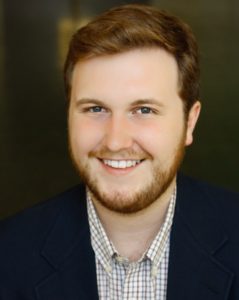 Timothy Ayres-Kerr BM is a recent graduate of New England Conservatory of Music and a former student of Bradley Williams. While studying at the Conservatory he performed as a soloist in Opera, Oratorio, and discovered a particular love of British and American Operetta, performing several lead tenor roles in the works of Gilbert & Sullivan, Most notably Frederic in The Pirates Penzance. Of a recent performance of his, the Boston Musical Intelligencer noted that "He sang with purity and conviction, enunciated perfectly, and acted without a touch of guile." Timothy is currently studying for an MM in vocal pedagogy with Ian Howell at the New England Conservatory while continuing to Run his own miniature opera company, the Parlour Opera Players. Timothy has been writing vocal music almost as long as he has been singing, working primarily on short comic operas and Cantatas. A Game of Werewolf is Timothy’s second completed opera. He is passionate about opera in English, whether it be new or old.
Timothy Ayres-Kerr BM is a recent graduate of New England Conservatory of Music and a former student of Bradley Williams. While studying at the Conservatory he performed as a soloist in Opera, Oratorio, and discovered a particular love of British and American Operetta, performing several lead tenor roles in the works of Gilbert & Sullivan, Most notably Frederic in The Pirates Penzance. Of a recent performance of his, the Boston Musical Intelligencer noted that "He sang with purity and conviction, enunciated perfectly, and acted without a touch of guile." Timothy is currently studying for an MM in vocal pedagogy with Ian Howell at the New England Conservatory while continuing to Run his own miniature opera company, the Parlour Opera Players. Timothy has been writing vocal music almost as long as he has been singing, working primarily on short comic operas and Cantatas. A Game of Werewolf is Timothy’s second completed opera. He is passionate about opera in English, whether it be new or old.
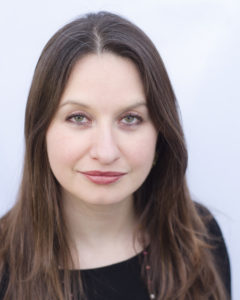 Angela Irving is a multifaceted singer who enjoys molding young HS-aged minds and voices. She currently teaches 65 wonderful young people at Bowie, Lake Travis, and McCallum High Schools. Angela performs with One Ounce Opera, Austin Opera, Gilbert & Sullivan Society of Austin, and as the soloist at the Christian Science Church downtown. Some recent roles are The Plaintiff/Angelina in Trial By Jury (Gilbert & Sullivan Austin); Fortuna in L’Incoronazione di Poppea (One Ounce Opera); Tessa in The Gondoliers (GSA); and Melissa in Princess Ida (GSA). Angela premiered the song cycle “Five Mystic Songs” by David Adams with string quartet at OOO’s Fresh Squeezed Ounce of Art Song in 2016, and has enjoyed premiering art songs and musicals by Rain Nox, Jonathan Geer, Michael Nesline/Steve Saugey, Fred Fisher, and, while at the University of North Texas, many, many others.
Angela Irving is a multifaceted singer who enjoys molding young HS-aged minds and voices. She currently teaches 65 wonderful young people at Bowie, Lake Travis, and McCallum High Schools. Angela performs with One Ounce Opera, Austin Opera, Gilbert & Sullivan Society of Austin, and as the soloist at the Christian Science Church downtown. Some recent roles are The Plaintiff/Angelina in Trial By Jury (Gilbert & Sullivan Austin); Fortuna in L’Incoronazione di Poppea (One Ounce Opera); Tessa in The Gondoliers (GSA); and Melissa in Princess Ida (GSA). Angela premiered the song cycle “Five Mystic Songs” by David Adams with string quartet at OOO’s Fresh Squeezed Ounce of Art Song in 2016, and has enjoyed premiering art songs and musicals by Rain Nox, Jonathan Geer, Michael Nesline/Steve Saugey, Fred Fisher, and, while at the University of North Texas, many, many others.
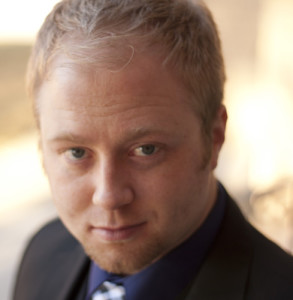
While studying for pre-med in his undergraduate work at Midwestern State University, Dalton Flake discovered the world of opera. His roles include: Borsa in Rigoletto; Rinuccio in Gianni Schicchi; Alfred in Die Fledermaus; and Detlef in The Student Prince. He then attended Texas State University for his Masters of Voice Performance. Where he added: Kaspar in Amahl and the Night Visitors; Candide in Candide; Sam Kaplan in Street Scene; Rodolfo in La Boheme; Charlot in Angelique, which went to win awards with the National Opera Association; E.T.A. Hoffmann in Le Contes d'Hoffmann; Abbe in Felice, and 1st boy in Trouble in Tahiti. He has been a soloist for Texas State in there performances of Monteverdi's Vespers and Mendelssohn's Elijah. Dalton has earned first place at NATS and won the Didzun Honors Award for excellence. Recently, Dalton performed Rodolfo in Puccini's La Boheme with Red River Lyric Opera. He thanks God and his wife and kids for allowing him the luxury of being a performer.
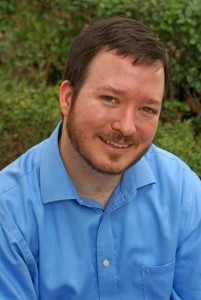
Having completed his MM in Vocal Performance at UT’s Butler School of Music, Andy Fleming continues to be involved in opera around Austin. Andy has performed roles with Gilbert and Sullivan Austin (Trial by Jury, Cox and Box, The Zoo), and even stepped into the pit for one production of Gondoliers. Critics have remarked that Andy “was there, too.” He has also performed with Spotlight on Opera (Hansel and Gretel, Die Zauberflöte, Cosí fan tutte), Opera Piccola (Abduction from the Seraglio), and One Ounce Opera (There's Beauty in the Beast, Love After the Collapse of Civilization, Ho! Ho! Ho!, Problems), and can be seen in the chorus of Austin Opera’s upcoming La Traviata.
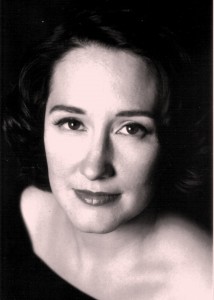
Patricia Combs, mezzo soprano, loves singing a wide variety of music, but excels in French literature, zarzuelas, and loves the challenges of contemporary works as well as chamber music. She will be playing the role of Dame Hannah in Ruddigore this summer with the Gilbert & Sullivan Society of Austin. Her roles include Alisa in Lucia di Lammermoor, Bianca in The Rape of Lucretia, Meg Page in Falstaff, Mrs. Zilkov in The Manchurian Candidate and Dinah in Trouble in Tahiti. She studied with Dr. Hugh Cardon, Rose Taylor, Cindy Sadler, and Cynthia Moellenhoff. She holds a Bachelors of Music Education from UT-El Paso and a Masters in Vocal Performance from UT-Austin.
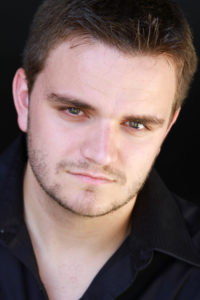
Jake Jacobsen, baritone, is a founding member of OOO and is excited to be performing in his third FSOO production. Jake is a graduate of the Butler School of Music, earning a Masters of Music in 2011, and a Doctor of Musical Arts degree in 2015. Jake has performed with several professional organizations in the
Austin Area in addition to OOO, including Conspirare, Austin Opera, and the Gilbert & Sullivan Society, where he performed the role of Samuel in their production of The Pirates of Penzance last season. At the end of this month, Jake will be performing in the chorus of Austin Opera’s production of La Traviata, and will be in the G&S Society’s production of Ruddigore in June.
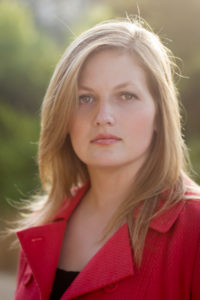
Jenny Ohrstrom's recent performances include Helena in Ho! Ho! Ho! and Voodoo Priestess in The Stranger the Better with One Ounce Opera, and Carmen with Austin Opera. Other highlights include Fiordiligi in Così fan tutte, Miss Pinkerton in The Old Maid and the Thief, Santuzza in Cavalleria Rusticana, Dido in Dido and Aeneas, Mother in Hansel and Gretel, and the title role in Alcina. Jenny holds a Master of Music in Voice Performance from California State University-Northridge and a Bachelor of Music in Voice Performance from Central Washington University in Ellensburg, Washington. She is a winner of CSUN’s and CWU’s Concerto Competitions, and a recipient of the Village Voices Chorale Scholarship, Nancy Hooker Scholarship, NATS-LA Summer Study Grant, CSUN Graduate Research Fellowship, and the CSUN Graduate Fellowship for Outstanding Research and Creative Activity. Keep up with Jenny at www.jennyohrstrom.me
FSOO Composer Spotlight: Tony Solitro and the Cast of "She's Fabulous"
 One Ounce Opera is happy to introduce you to Tony Solitro, composer/librettist of "She's Fabulous," a Fresh Squeezed Ounce of Opera 2018 winner. Soprano Julia Watkins-Davis (Clarice) and Mezzo-soprano Patricia Combs (Bethel) -- who will breathe life (and laughter!) into the piece -- had these questions for Tony:
One Ounce Opera is happy to introduce you to Tony Solitro, composer/librettist of "She's Fabulous," a Fresh Squeezed Ounce of Opera 2018 winner. Soprano Julia Watkins-Davis (Clarice) and Mezzo-soprano Patricia Combs (Bethel) -- who will breathe life (and laughter!) into the piece -- had these questions for Tony:
1. I really enjoy singing this piece. I understand that part of the inspiration may have come from a Funny or Die video. Could you walk us through your composition process for this piece? How did you come up with the character names?
The idea to adapt Jack Neary’s play came from Greg Smucker and Trish Weinmann (Artistic Directors of Boston Opera Collaborative). They sent several short plays and asked if any resonated with me. When I read the script, Clarice and Bethel seemed so familiar to me. I adore all the over-the-top opera singers in my life, even when they are being total divas. I poke fun at singer-culture throughout the vignette, but it always comes from a place of love.
The original play is sharp and concise. When the ladies banter and echo one another, it's also quite musical. I seized every opportunity that allowed the characters to sing together. (I'm always on the lookout for these moments, but they are rare in plays). These qualities are all built into the source material, so the process felt very organic.
2. Do you compose at the piano? Or do you use Digital Performer, Logic, or ProTools to sequence the music, or go old-school with manuscript paper and then to Sibelius or Finale to render it?
I composed most of She’s Fabulous at the piano and penciled it on old-school manuscript paper. I wrote it during a residency at VCCA in Virginia. My studio had a lovely grand piano—a luxurious step up from my trusty keyboard at home—and wanted to take full advantage of it. (I don’t work this way on every piece. I often prefer to balance my work at the piano with abstract techniques. Drawing shapes and contours. Mapping out rhythmic and harmonic patterns. Writing prose.) Each evening, I engraved the day’s work in Finale.
I surprised myself with this piece. The concept was clear to me from the moment I read the play. The muse took over, and the realization felt inevitable. I typically trudge through several sketches and drafts. I refine ideas through a slow, methodical, and labor-intensive revision process. The final score for She's Fabulous materialized with uncharacteristic immediacy and clarity. This is me at my least self-conscious. I remember worrying about the pastiche audition arias and the zany “Congratulations†waltz. Comedy is particularly challenging … I’d work alone all day, then step out of my studio humming the tunes and chuckling to myself. I wasn’t sure if anybody else would find it funny. When I heard the audience’s reaction opening night, I was glad I didn’t second-guess my choices.
3. I noticed that, for the most part, this piece was written very conversationally. How long did it take you to get the rhythms just right?
There’s an ideal balance that I want to achieve. If it is too conversational, the whole thing sounds like recitative. The voice can’t shine in that context, and it’ll be boring for the audience. If I sacrifice prosody for the sake of the music, then I’m disrespecting the text. It weakens the theatrical experience if the words are unintelligible.
John Steinbeck gave some wise advice. “If you are using dialogue—say it aloud as you write it. Only then will it have the sound of speech.†Even though I’m not a vocalist, I sing through everything with a metronome. (Gotta make sure I can get the words out at tempo and find my note in the chord!) From the beginning, I make it a priority to honor natural speech patterns. Then, I can make music. Stretch things out. Energize the rhythmic profile. Play with articulation.
4. I was wondering if you were interested in composing more “mini-operas†with Clarice and Bethel, since Jack Neary has at least six ten-minute plays...
I have a lot of fun with the mini-opera genre. It's been a satisfying creative outlet for me. Boston Opera Collaborative presents a popular “Opera Bites†program each November. Our first collaboration was She’s Fabulous in 2016. They subsequently commissioned Triangle in 2017, and we have an exciting project in the works for 2018. I am certain more vignettes are in my future—but I have no plans (yet) to adapt another from the Clarice/Bethel series. Should the opportunity present itself, I’d happily revisit them. Jack’s writing is brilliant, and these characters hold a special place in my heart.
Watch an One Ounce Opera live performance of She's Fabulous on YouTube!
_____
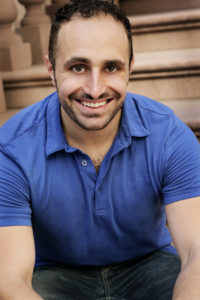
Tony Solitro is composer of concert and stage music whose recent works have been commissioned by Boston Opera Collaborative, Joseph Conyers (Assistant Principal Bass, Philadelphia Orchestra), the Institute of Contemporary Art, Philadelphia, and Network for New Music. His compositions have been performed by People Inside Electronics (Los Angeles), the Litha Symphony Orchestra (Manhattan), International Opera Theater (USA/Italy), and in venues such as the Red Note New Music Festival (Illinois State University), the Royal Northern College of Music (Manchester, England), and the International Guitar Research Centre (University of Surrey, Guildford, UK). Tony has been awarded fellowships from Yaddo, VCCA, Brush Creek, Kimmel Harding Nelson, and the Brevard Music Center. He earned his Ph.D. (University of Pennsylvania) as a recipient of the George Crumb Music Fellowship and his M.M. (Longy School of Music) on a Nadia and Lili Boulanger Scholarship. To hear recordings, see videos, and explore his composition catalogue, visit www.tonysolitro.com.
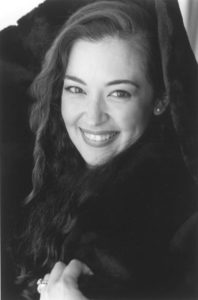
Julia Watkins-Davis has been praised for her"fiery coloratura" and"outstanding musicianship and gift of interpretation" as a classical performer. In the 2017-2018 Season, she will perform Donna Anna in Don Giovanni with Texas Concert Opera Collective, and debut in a winning mini-opera with One Ounce Opera’s “Fresh Squeezed Ounce of Opera." Credits include work with Austin Opera; Los Angeles Opera and their Community Education Department; Glimmerglass Opera; the Geffen Playhouse in Los Angeles; South Bay Opera; Orange County Opera; Pacific Music Festival in Sapporo, Japan; and the Altenburg Musik Festival in Germany. Not confined to traditional classical endeavors, Julia has recorded with emerging popular artists, voiced regional commercials and performed featured solos for film and television soundtracks, including HBO's Carnivà le and Virtual Obsession for ABC/Von Zerneck-Sertner Films. For the title theme to The Forgotten City, she served as both singer and co-composer. Julia Watkins-Davis was awarded the Grand Prize at the national finals of the Bel Canto Vocal Scholarship Foundation. She has also been honored as a district winner of the Metropolitan Opera National Council Auditions in Southern California, recognized by the National Association of Teachers of Singing (NATS), the Young Musicians Foundation, the Palm Springs Opera Guild, the Loren L. Zachary Society and the Opera Buffs of Southern California.

Patricia Combs, mezzo soprano, loves singing a wide variety of music, but excels in French literature, zarzuelas, and loves the challenges of contemporary works as well as chamber music. She will be playing the role of Dame Hannah in Ruddigore this summer with the Gilbert & Sullivan Society of Austin. Her roles include Alisa in Lucia di Lammermoor, Bianca in The Rape of Lucretia, Meg Page in Falstaff, Mrs. Zilkov in The Manchurian Candidate and Dinah in Trouble in Tahiti. She studied with Dr. Hugh Cardon, Rose Taylor, Cindy Sadler, and Cynthia Moellenhoff. She holds a Bachelors of Music Education from UT-El Paso and a Masters in Vocal Performance from UT-Austin.
Meet Jesse McMilin, Winning Composer of FSOO 2016
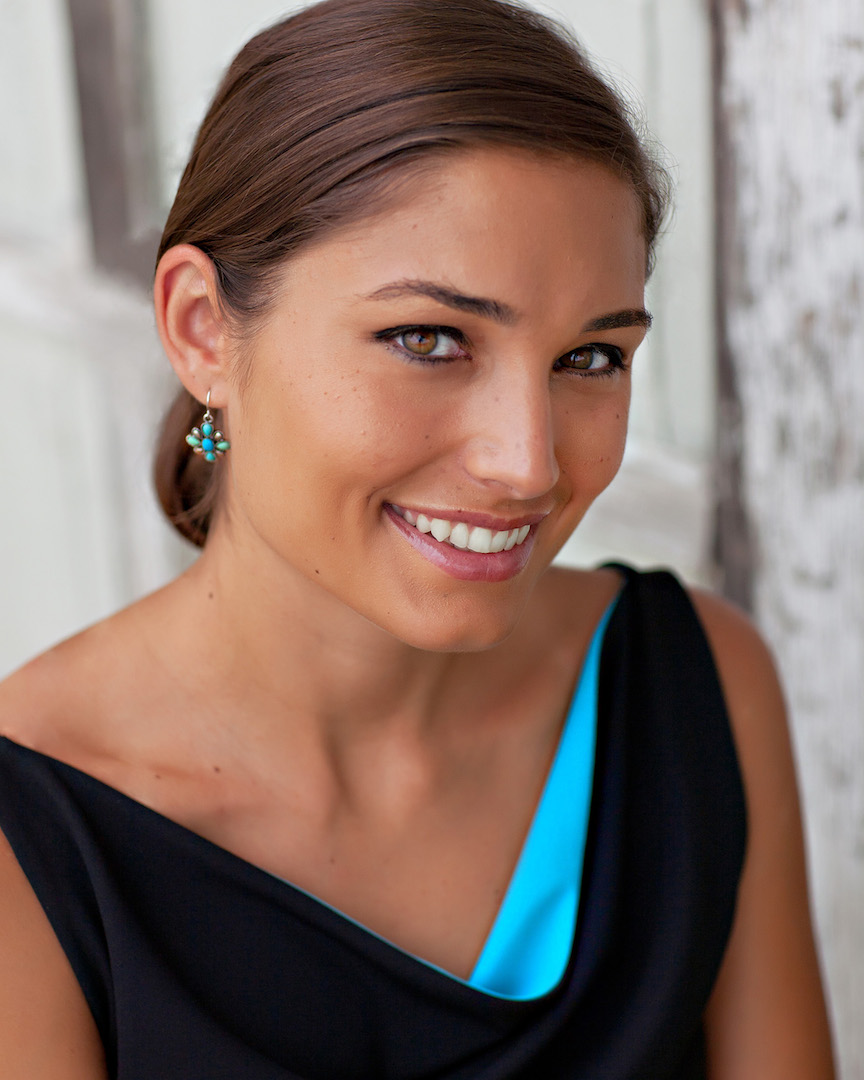 This is the fifth -- and final -- in our series of composer spotlights previewing the Inaugural Fresh Squeezed Ounce of Opera, April 15 and 16, 2016. Meet Jesse McMilin, composer of the one act opera A Miller's Tale, based on a story in Chaucer's Canterbury Tales. OOO Member Julie Silva conducted this interview. Julie will portray "Alison" in McMilin's new work, which is getting it's premiere at FSOO!
This is the fifth -- and final -- in our series of composer spotlights previewing the Inaugural Fresh Squeezed Ounce of Opera, April 15 and 16, 2016. Meet Jesse McMilin, composer of the one act opera A Miller's Tale, based on a story in Chaucer's Canterbury Tales. OOO Member Julie Silva conducted this interview. Julie will portray "Alison" in McMilin's new work, which is getting it's premiere at FSOO!
1) So, how did you choose The Miller's Tale in particular from Chaucer's Canterbury Tales for the inspiration for your opera? What do you like about these characters?
When I heard about OOO's call for short opera, I racked my brain for story material that was concise, humorous, and timeless. The Canterbury Tales immediately struck me as the perfect place to start my search, and The Miller's Tale, with its wild antics and fast pace, stood out especially. The characters are nothing if not entertaining. The clever Alison and selfish Nicholas will sacrifice John's happiness to satisfy their desires, and seem to even enjoy manipulating this helpless old buffoon.
While the plot of the opera differs substantially from that of the source material, the dynamic of these three characters remains much the same. Absalon, on the other hand, ends up playing a different role entirely: while in the original he's just another idiot caught up in Alison's and Nicholas's self-interested games, he's portrayed as a villain in my opera. I felt it would make more sense to introduce him in an added scene for a stage adaption because, in the original, he was introduced toward the end and his motives were described through narration, which would make very little sense in this context. When I introduced him in this fabricated scene, I found myself highlighting his more visceral, disgusting qualities, and by the middle of the scene, I had decided to roll with it. He had become the villain in a villain-less story; a fool, yes, but a dangerous one.
The next greatest character change I made happened in the finer details of Alison's character. I wanted to emphasize her cleverness, her disregard for loyalty and authority, and her fearlessness. I also wanted to add just a smidgen of empathy (which, in the original, I am nearly convinced she totally lacks). This is used to bring about a sense of moral closure as she finally learns to feel the pain of John's simple but innocent confusion during the conclusion of the opera. The same sort of closure isn't used in the original story, that Chaucer might reveal the character of the miller who tells it; the story ends more abruptly, but the effectiveness of this technique again relies on narration, as well as an outside context for the tale's delivery.
2. How did Chaucer's Miller's Tale influence your composition? How would you describe your compositional style in this opera?
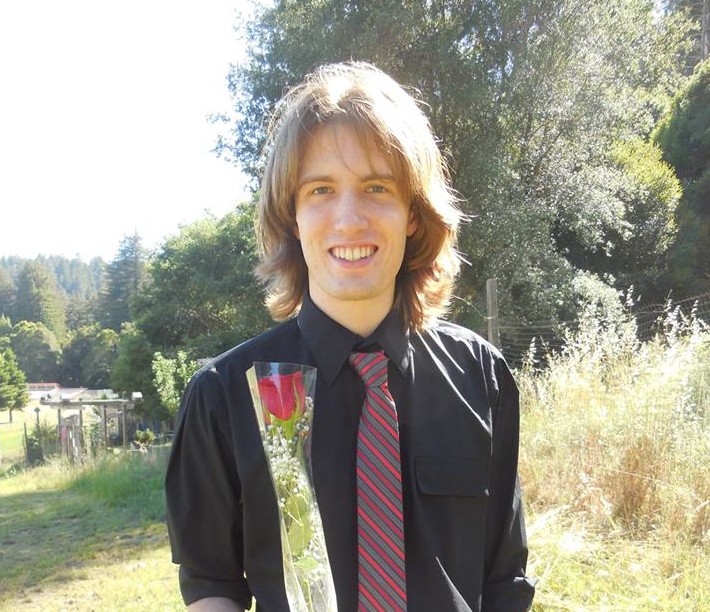
The compositional style of The Miller's Tale varies depending on the character singing. I have motifs that are stylized in various ways depending on whose dialogue they highlight, and while there are exceptions, I have distinct "feels" for each of the characters. Nicholas's is lilting and carefree while warped by dissonance, indicating his remorselessly manipulative nature; Alison's heavily relies on the diminished and lydian-mixolydian scales (an eight note scale alternating half-whole-half-whole and a major scale with the raised fourth of lydian plus the lowered seventh of mixolydian, respectively) to indicate her unconventionally whimsical nature, which, paired with her several contortions of John's main theme, and several adaptions of her twelve-bar-blues "plotting" theme by Nicholas, I hope will help emphasize her adaptability and pervasiveness; meanwhile, John's style is mainly diatonic and textually warm compared to the surrounding writing, while Absalon's is heavy-handed, brooding, and repetitive.
3. When and why did you start composing classical music? Who are your key influences? What's your favorite opera?
I'm not sure when to mark precisely when I started writing "classical" music. Was it when I wrote my first song that was more than a fleeting improvisation to be forgotten later? If so, the answer would be fourth grade. If the first original song to be written in notation and performed by an ensemble marks this point, then eighth grade. But really, I've always loved classical music and been enthusiastic about composition, and have made a regular pastime of sitting for hours at a time at the piano just playing whatever comes to mind--a habit I've kept up since I first started receiving a music education at five years old.
I listened to nothing but classical for nearly the first two thirds of my life, loving Bach initially in my early childhood for its mesmerizing, delicate passages before developing a strong interest in the romantics in my later childhood and early teens when I lived consumed by a universe inspired by the countless fantasy novels I was enthralled with at the time; the programmatic stories of Grieg, Saint-Seans, and Rachmaninoff provided the perfect background to my imaginary world.
In my later teens, I discovered the impressionists, finding Debussy's and Ravel's thoughtful color palettes enlighteningly fresh. At the same time, I followed a separate strain that bought me to Gershwin, who, despite my previous experience with jazz, really helped me develop a liking for the jazz of that time. He also composed my favorite opera, Porgy and Bess, combining opera tradition with his musical theater experience. But I digress: the impressionists, at this time, seemed more mature to my developing ear than the romantics, who at this time sounded stagnant to me. Of course, my love of the romantic era never really faded, just receded for a time to make way for what I thought would define my musical style from there on out. Of course, I was mistaken; within the past two years, I've come to adore the expressionists, especially Bartok and early Stravinsky. I love how raw and visceral their harmonies are, how jaggedly their syncopated rhythms pull the listener to and fro. These two remain the most prominent classical influences on my work, Bartok being a major influence on The Miller's Tale specifically.
4. Where do you think the future of opera is headed?
I'm no musicologist, nor has the focus of my writing been opera (this is the first I've ever written), and I can't say for certain where I think opera is headed. It's no mystery that the popularity of opera in the traditional sense has suffered a decline, but its legacy manifests itself in other ways. There is, no doubt, a fine and often twisting line between opera and musical theater, the latter of which is by no means decreasing in popularity. However, I don't believe that opera as a distinct art form is dead to the public as long as modern opera continues to persevere through organizations like OOO.
I took special note that one of the most prominent aspects of advertising for Fresh Squeezed Ounce consists of two words: in English. This essentially says, "The text is meant to be understood," for the average resident of Austin. I think the emphasis placed here marks one of the ways in which opera must change if it is to survive; while an opera enthusiast can enjoy the sheer spectacle of an opera whose language they don't understand, there is a reason that musical theater has thrived, and that, I believe, is an emphasis on text. When the communicability of the text matches the ubiquity and depth of the music (distinguished from that of musical theater, which is divided into distinct, standalone numbers), opera will, perhaps, not seem so daunting and antiquated to any given person. Of course, this is a very hastily drawn hypothesis from an inexperienced composer, but I hope it can provide some insight.
Jesse McMilin is from California. To find out more about Jesse, come meet him in person on Saturday, April 16th!
Meet Tori Ovel, Winning Composer of FSOO 2016
This is the fourth in our series of composer spotlights previewing the Inaugural Fresh Squeezed Ounce of Opera, April 15 and 16, 2016. Meet Tori Ovel, composer of the one act opera Now Boarding, which depicts a scene familiar to most. Interview by Julie Fiore.
1. You describe Now Boarding as a “slice of time.” Did a particular personal flight or travel experience inspire this piece?
Now Boarding has a slightly harried upbringing, something I’m sure many creative people have dealt with. Its inspiration struck me at 3 am one morning, and I have a decently vivid memory of me speaking at my tablet, using speech to text typing to record this groggy idea. Between my junior and senior years at the University of Northern Iowa, I attended three composition festivals. It meant that 21 year old me, having rarely traveled without family, even more rarely on planes (maybe… three or five plane adventures prior?), was about to have some serious one on one time in some big ole airports. In one adventure, I took a mega bus (for only FIVE DOLLARS!) from Iowa City to Chicago, departing at 3am. At 5am, I was wandering the streets of the windy city to find the subway/train/whatever they call it there, to get to the airport. Eight bucks isn’t bad to get from Iowa City to ORD in Chicago. On the route home, I misjudged the NYC public transportation and got to JFK fifteen minutes before my flight was scheduled to board—WOO what a rush!
I spent a bit of time in airports. No particular flight inspired me, but when I decided I wanted to write a little opera, I figured it couldn’t have a dramatic arc—I was looking to write something that reflected everyone’s experience, or at least something that seemed like it could have actually happened. I did a bit of theater in high school, and when I thought about a 10 minute dramatic plot, I was brought back to the ridiculously bizarre high school improv scenes. Most people like to people watch, or at least have experienced people watching, so I figured it was a good place to start. This 3am idea came to me in the spring of 2015, but when I took the idea to a visiting opera composer at my undergrad, he told me it would never work. He said operas work best when the characters are moved to action—not like in Now Boarding where most of the characters are singing without instigation from a specific event. I was crushed, tabled the project, and went on with other composition.
In the fall of 2015, I brought the idea to my master’s composition professor, Dr. Michael Schelle. He loved the idea. He basically said to hell with the other guy, reminded me that many people have old fashioned opinions, but that isn’t the only kind of people in the world. Thus, Now Boarding began to live again.
2. In Now Boarding, we meet three distinct passengers. When you were writing for each specifically, where did their musical ideas/characterizations come from? If you had to pick, which was the most fun to write?
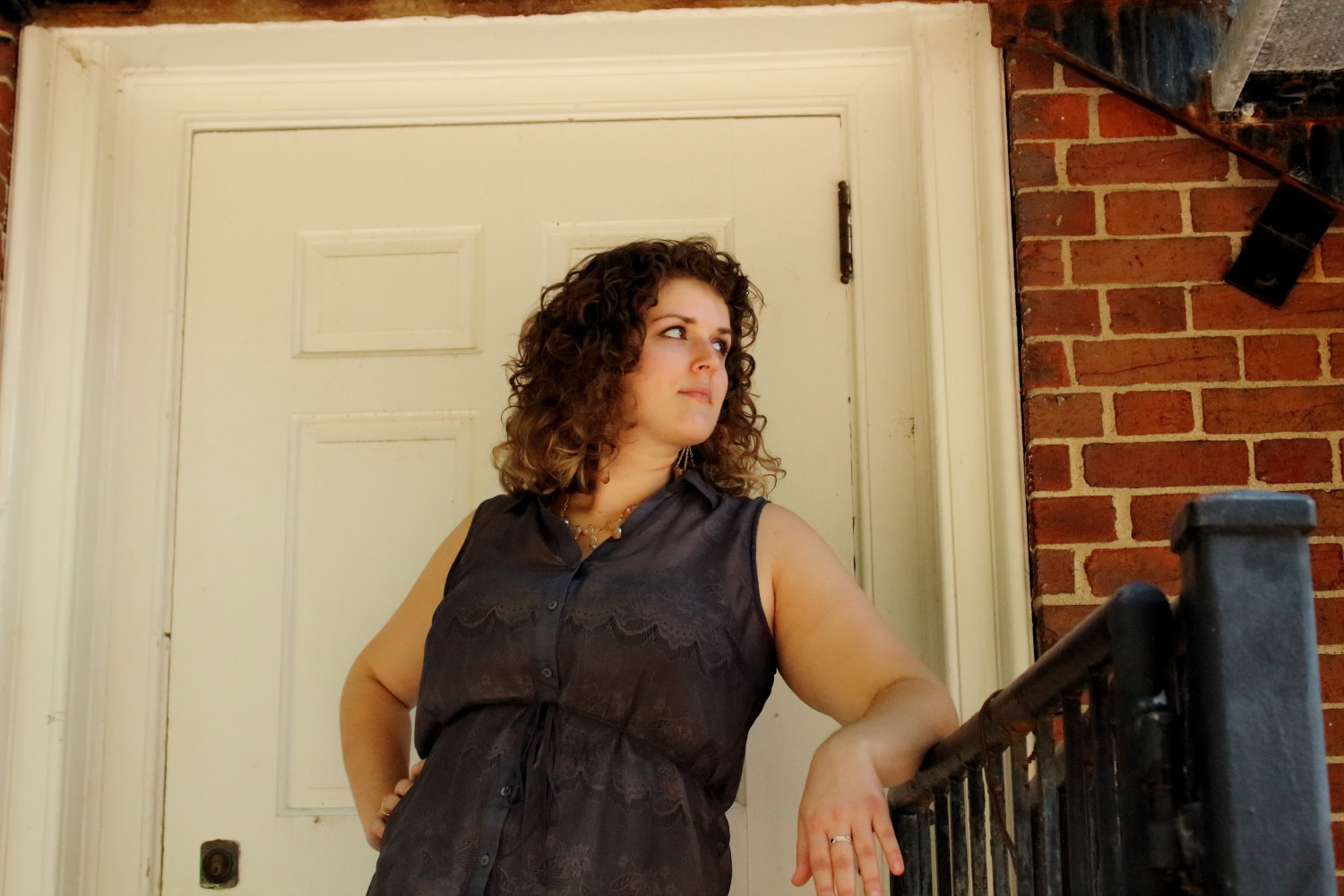
You know, writing for these characterizations just sort of happened. I knew what kind of personalities I wanted to portray, and what kinds of emotions I wanted, and I just kind of went with it. With Sad’s character (they are nameless because when you people watch, people don’t generally wear name tags--- how would you know their names?) I knew I wanted people to relate in a very visceral way. I wanted people to be reminded of their own personal losses and be able to completely empathize with his character, so I wrote this beautiful melody that showed off my Butler singer’s (Jeremiah Sanders) amazingly rich range. He knocks my socks off when he sings it—goose bumps every time. I refer to the Business character as the sleazy business man. You know the guy—always on the phone, treats his waitresses like scum, thinks he’s entitled to the world. I thought a straight eighth’s jazz feel would be coolly unpleasant for him. He’s trying to manipulate people, so he seems genuine, but there is something off about him. He sucks. With Worried, I wanted a frantic, hypochondriac kind of terrorized young adult. I didn’t mean for her part to be so atonal… but I think it works well for her part. She’s dramatic. She will highly likely survive this plane trip—CHILL OUT WOMAN! She’s all over the place in every way.
Although I am partial to Sad’s heart wrenching piece, I have to say that Worried is the one that gets stuck in my head the most. I love the drama in the wide intervals and rhythmic variation.
3. As a saxophonist with a jazz background, how do you feel it influences your writing for the voice? Do you hear that palette shine through in Now Boarding more than your other pieces?
Jazz music has definitely influenced my writing by giving me immediate and express freedom to the extended tertian harmonies used in the genre. It meant that I spend little time with simple major and minor chords, and jumped directly toward dissonances—remember kinds, “you’re only half step away from a resolution!” (All Jazz faculty at UNI). I also wrote a lot of singer-songwriter stuff in high school (and a little now and then), so I’m pretty familiar with the basics of the voice. My best friend in the world, kick-butt Soprano MaKayla McDonald, was the unfortunate subject of my first vocal compositions, so I learned a lot about writing for voice by picking her brain and hearing her rant or rave about studio classes.
Palette-wise I’ve spent the last few years trying to figure out my sound-world. Now Boarding is some of the most unique writing I’ve done—definitely the most well planned shifting of character feel. Being able to write with a specific character in mind was unique because it meant I didn’t necessarily have to find what I was writing aesthetically pleasing. If it fit the role, it worked! I love everything on the page at this point, but having that freedom was amazing for the writing process. Opera is this whole new ballpark that I’m very excited to look into further!
4. We love that you are also a proponent of collaboration and re-imagining classical music performance, through your recent project NuMuzArt. Where do you believe the future of opera is headed?
You know, so many people have this strange idea about what classical music is. My dearest aunt said to me, over Thanksgiving break, something to the effect of, “but like… no one really likes classical music.” Giving the figures are at about 3% of the general population really enjoying the genre, I was inclined to agree. “I get why you would say that,” I said, “but people love film scores, and those are like 80% (number I made up) classical music. We present it poorly. It’s a stuffy experience.” We need to bring people back to this awesome music. We need to quit hammering the dead guys’ music (I love the dead guys, but let’s get some more livers around!). We need to quit forcing people to sit still in deceptively uncomfortable seats with poorly angled flooring so that feet can never sit still. We need to quit walking out on stage and beginning the performance without talking about our passions behind the music before each piece. We need to play into where the general population is going while expanding the creative aspects. So people like to sit on their phones? Give them an interactive (SILENT) application to go along with the music. Do something! I value the seriousness of the concert hall. I’m not necessarily happy that most of the current population can’t sit still for a whole production of Mahler’s anything. But, the seriousness of classical music is not going to bring us the other 97%, and, seeing as how I cannot go teach the entire audience, myself included even, to sit still and pay attention to 40+ minutes of music at once, I might as well meet them half way! Short operas… in ENGLISH?! This is great! I recently heard about tv-style opera. That’s amazing. All of the flash of TV show production capabilities with dynamite music! Netflix Opera Originals—let’s make it happen! Let’s find some common ground between disrupting the performance and falling asleep. Let’s keep our Art, but let other people see it as such.
Tori Ovel is currently pursuing a Masters at Butler University. Find out more about Tori by visiting her website!
Meet Jeff Luna, Winning Composer of FSOO 2016
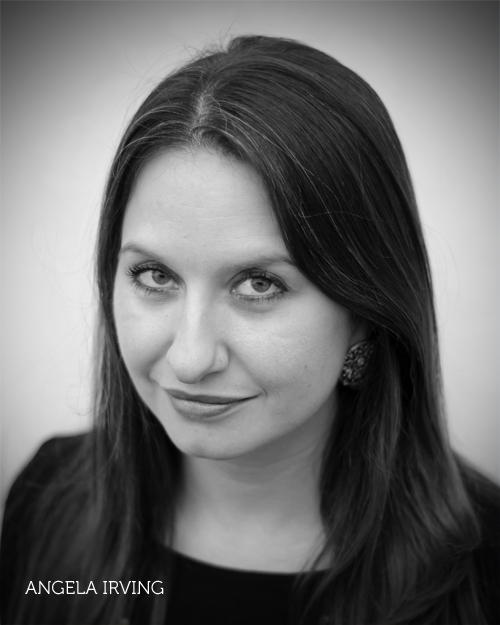
This is the third in our series of composer spotlights previewing the Inaugural Fresh Squeezed Ounce of Opera, April 15, 16, 2016.
Meet Austinite Jeff Luna, whose winning short comic operetta Love After the Collapse of Civilization will have you swiping right, and wondering about where we might really be headed.
OOO member Angela Irving conducted this interview.
Be the TITLE SPONSOR for Love After the Collapse of Civilization!
1) What inspired you to write Love After the Collapse of Civilization?

I was inspired to write Love After the Collapse of Civilization after dating on sites like Tinder and OkCupid and seeing how strange the reality of dating has become, and how that reality has become the new normal. And in the future, when our grandkids are telling us about how complicated dating has become what with all the telekinesis and mind-melding, we’ll be telling them how simple it used to be, when we would just push a button on someone’s picture to tell them we liked them. Also, post-apocalyptic stories are fun to write, so I decided to make an operetta about a nostalgia for 2016-era dating in a primitive society after the world more or less ended.
2) I love how you chose to break the 4th wall in LACC! Why/how did that device strike you for this piece?
In any story that happens after the end of the world, there’s a ton of backstory that needs to somehow be revealed. The only way I could imagine having this backstory be revealed was through the main characters to an outsider. In this future there’s only about 200 people, and they all know very well just what happened, so the outsider would have to either be an extraterrestrial, a time-traveler, or a last-minute emergency interpretive narrator. I chose the latter, which necessitated breaking the 4th wall.
3) Looking at your website, it looks like you’re heavily involved with a bunch of different genres of music, from classical to rock to commercial music — was this your plan?
As a professional composer without a music degree, I take whatever jobs I can get and try to give my clients whatever they want, even if it’s in a style I’m not familiar with. This involves a lot of musical cramming and approximation of various genres, but it’s worked so far, and as a result I have lots of tiny genre fragments in my head that come in handy when I’m writing.
4) You’ve written a lot of scores for films, and even won some awards for them! — Will you talk about your process for writing music for other people’s existing art works and your process for creating your own?
With film scores, the director has often already made up their mind about the exact feel of the music they want in each scene. The challenge is to translate adjectives like “dark,” “ominous,” “cheery,” or “hopeful,” into musical passages that meet the director’s expectations. I’m not a very good mind reader, so usually it’s a matter of trial and error, and can be frustrating, but the end result is that I end up writing more music than I would have otherwise, which is awesome. The process for creating my own pieces is the same as the process for writing for others, but trying to figure out what it is that I want and what I’ll ultimately be happy with can be more difficult than working with a picky director.
5) As a member of Minor Mishap Marching Band, a group that brings brass band music to the streets of Austin, TX, and a member of/composer for the late Sound Bridge Project, a group that sought to bridge the gap between classical music and the general public, where do you feel the future of classical music and the general public (especially of Austin) is going?
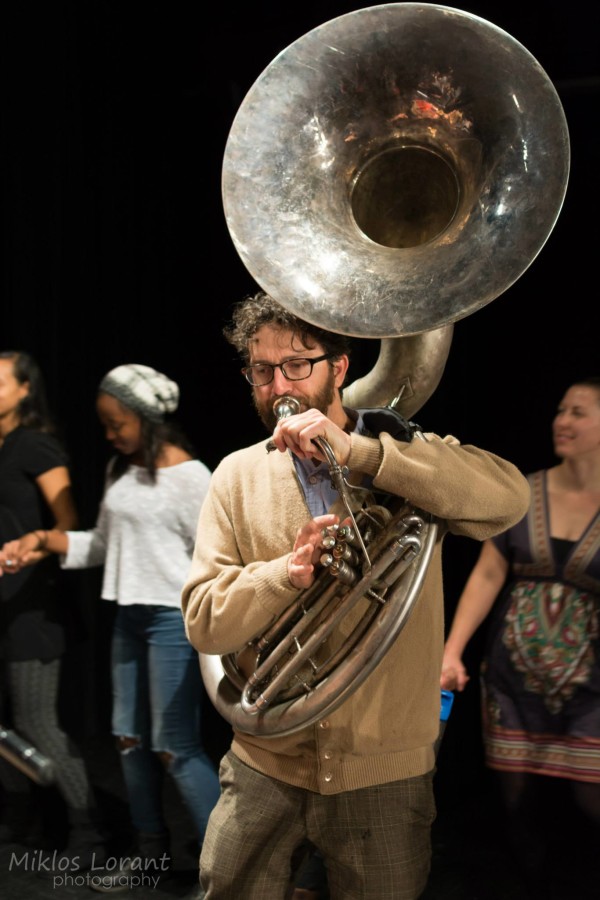
A 25 piece costumed brass band playing upbeat catchy music will always have an audience. Minor Mishap can be subtle too, and we do it well, but we have to gauge the audience first, because a lot of times they’re expecting loud and audacious. The Sound Bridge Project was very successful at bringing classical music to a public that might not experience it otherwise, in listening rooms such as Flipnotics or the Vortex Theater. However, in other venues we would encounter the same problems musicians in every genre experience in Austin, where the music is relegated to the background and you’re performing amongst chatter, large televisions, and other audience distractions. Loud amplified music can cut through the chatter and it doesn’t affect the performance much, but a delicate classical piece is quickly drowned in that atmosphere. The success of a classical music performance is hinged on people paying attention - there’s a lot of interesting things happening in the harmonies, counterpoint, and rhythm that you’re going to miss if you’re in the middle of a conversation. I think it should absolutely be performed in unconventional spaces, but only if the audience understands that they’ll enjoy it a lot more if they pay attention. We need Alamo Drafthouse style warnings before performances - DON’T TALK OR TEXT OR WE’LL KICK YOUR ASS OUT.
Jeff Luna is a composer, arranger, engineer, producer, music director, and musician. Mr. Luna has composed and arranged original scores to documentaries, feature films, plays and musicals, documentaries, a short opera, and has also written songs and music for international PR firms and advertising agencies. In addition, he has over 14 years experience recording and producing music of many different genres.
Meet Liam Wade and John Grimmett, Winning Composer/Librettist Team of FSOO 2016
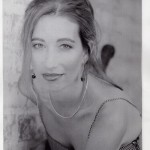
One of the five chosen shorts for the Inaugural Fresh Squeezed Ounce of Opera harkens back to the days of vaudeville. Part of the Act will receive its regional premiere on April 15, 2016 in Austin, Texas.
BECOME THE TITLE SPONSOR FOR Part of the Act!
To get to know them better, OOO Member Maureen Broy Papovich recently discussed Part of the Act with its creators, Composer Liam Wade and Librettist John Grimmett. Maureen, who will be taking on the role of "Ginger Taylor," had these questions for this winning team:
1. For John and Liam: my character, Ginger Taylor, is a seasoned actress with a complex history. The situation she in which she finds herself is timeless. How did you decide on this story for an opera? Is the character of Ginger Taylor based on any actress in particular?
John: Liam and I went back and forth on a couple of ideas, everything from original stories to adaptations. We settled on a short play we both liked by the Hungarian playwright Ferenc Molnar (who is most famous for his play Liliom which Rodgers and Hammerstein adapted into Carousel) called A Matter of Husbands. We were both drawn to the humorous ironies within the play -- we found them timeless, too.
I proposed we move the time and place to a 1920s vaudeville house, where "show business" was born, and then we gave names to the characters (Molnar had them notated as "Famous Actress" and "Earnest Young Woman.") I think Ginger Taylor is an aggregate of many different types of comic actresses we think we know -- Fanny Brice, Ethel Merman, Barbra Streisand, Liza Minelli (or, maybe, Minelli's portrayal of Sally Bowles from Cabaret is most accurate), etc. She is a complicated character, and I hesitate to say she is an archetype or a stock character, though it's easy to typify her in that way since she is in a "musical comedy." I never set out intending to create her as an imitation of anything other than who she is -- and I think Liam succeeds in giving her some really indulgent music. That's who she is, after all.
Does she feel sorry for Mabel? Maybe. Does she really love Seamus? Probably not. But in both cases, I think she loves making you think she does, and that's truly what she loves the most.
Another note: not every composer can write "funny" music, and many people think "funny" music does not exist. Liam, however, has created a score that re-contextualizes the musical jokes that we all love in Looney Tunes. What I love most about Liam and his music is that you have a composer who clearly understands Brahms and Wagner and the masters of classical music and who has a very funny sense of humor. Those two things -- an awareness of craft and one's self -- are necessary when writing a farce, and I think that's why this piece continues to speak to audiences.
2. For Liam: Are there different aspects and qualities of the music you use to capture qualities of the characters?
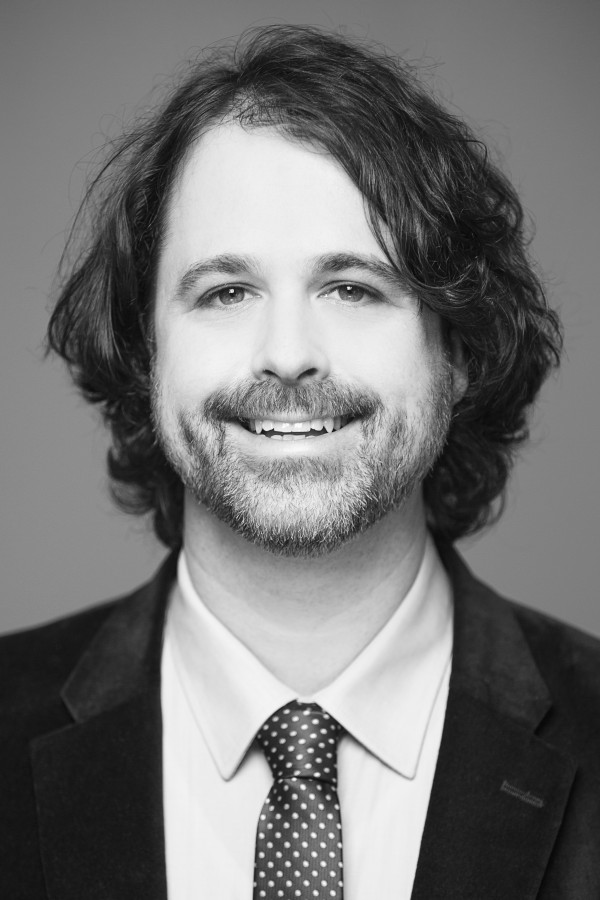
Liam: A big musical influence on Part of the Act was the early Disney and Warner Bros. cartoon scores by Carl Stalling. His scores were often a patch-work of musical references mixed with his technique of "Mickey Mousing" the actions of the characters with musical sound effects. This approach has its roots in vaudeville and the music a pianist or organist would play in the theater accompanying a silent film.
John created some three very dynamic characters, each with lovable and deplorable qualities. In that way they felt very real to me. It was clear that Ginger was a showoff, so I took her into a Queen of the Night/ "Glitter and Be Gay" direction. Mabel needed to work on her self esteem, so I gave her some "Trouble in Tahiti" and Electra moments. And Seamus is the sweet talking Irish Bari-tenor who's completely in love with himself.
There is a lot of physical comedy in POTA, so as I was acting out the libretto in the music, the piece really took on an authentic vaudeville-slapstick feel. The idea to really play up the slapstick was also something I got from talking to my great aunt Maureen Wade who remembered seeing vaudeville shows as a child in the 1920's. Another thing I really like about John's libretto is how fast it moves. It's a very quick 20 minutes, and that really helped me find the comedic timing. John recommended that I watch Looney Tunes too.
There is a coolness about Ginger Taylor, but she's also a trouble maker. I always thought of her like Bugs Bunny. Along those lines, the role Mabel McGinley is a bit like Elmer Fudd. Gullible and gunslinging. We sympathize with her, but she might actually blow someone's head off. Ginger and Mabel kind of play out a role reversal of antagonist and protagonist, like Bugs and Elmer in "What's Opera, Doc?", or any other Bugs and Elmer cartoon.
And the husband, Seamus McGinley... I initially though of him as pretty simple like Steve Martin's character in "The Jerk". Working with tenor John Packard on the studio recording helped me realize that there is a real sliminess to the role, like Nick Apollo Forte's character in Broadway Danny Rose or Michael Caine's character in Hannah and Her Sisters. Woody Allen's casanovas are always such jerks.
3. For John: I noticed that you have authored both lyrics and composed music for different pieces, much like Stephen Sondheim. As a librettist, does the fact that the story will be set to music affect your words? Do you have ideas about how the music should sound?
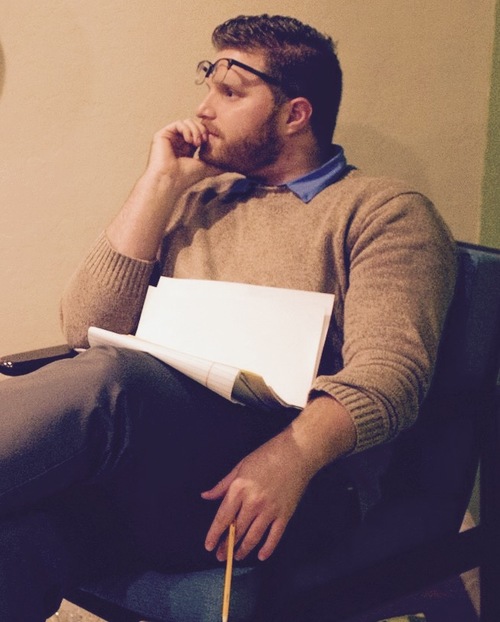
John: A good librettist understands music and its function in an opera. I happen to write both music and words, so I feel like I'm at an advantage than, say, a playwright or a poet who attempts libretto writing without a clear concept of how music functions dramatically. My teacher, Edward Albee, considers himself a composer over a playwright because he attempts to compose music with language. I aspire to the same, and I think my musical training in composition and orchestration have been incredibly useful in this regard. That said, I've never considered myself a composer who writes dramatically; instead, I feel like I am a playwright who happens to write music, much in the same way some actors are actors who happen to sing rather than singers who happen to act.
The words in an opera have to inspire music and serve as a vessel for the music to create dramatic subtext. Otherwise, the entire thing becomes too muddy and convoluted -- if a play is a perfectly good play or a poem a perfectly good poem, why need it be set to music if the emotional response garnered from the play or poem has already created a unique experience? I argue that music has little to add, at that point, since the literature seems to possess a music of its own. I believe some of the great librettists of the 21st century -- people who have influenced me like Gene Scheer or Deborah Brevoort or Royce Vavrek or Donna DiNovelli or Mark Campbell -- strive for balance. No longer do we believe that a libretto is a skeleton upon which hangs a musical flesh; instead, we strive to balance a work of literature on its own merit against being a vessel for musical drama. It's very difficult thing to do, but when it's done right, the audience has a transcendent experience.
Technically, a librettist must understand rhythm in all aspects, both musically and dramatically. There are dramatic beats when things happen in an opera (versus a song cycle, when poetry captures a bit of the mundane and makes a single moment extraordinary), and there are musical beats that put the story and characters in the spotlight. How one makes this happen, rhythmically, is similar to how an artist decides what medium she should use to create a work of visual art. I paint with words, so should this moment, rhythmically, be a lyric with a structure? Is that how I'd like the drama to land? How will I parcel out the story that way as opposed to using something freer in terms of form? Does the content (the characters, the story, etc.) demand this? Sondheim, as you mention, masters these things, and I'd like to think it is because he understands rhythm as both a musical and dramatic fundamental. Read the lyrics to "Someone in a Tree" from Pacific Overtures and see for yourself how rhythm is paramount to the librettist.
It's hard for me to talk about my own work because I can only comment as an observer (meaning I'm not sure any of these ideas I have about writing are active choices as opposed to an instinctive ones). I think I will always have my musical ideas with the libretti I write with other composers, and while we certainly discuss those ideas during the writing process, I celebrate the composer's unique voice on whatever piece we are working on together. There is a reason I make things with the composers I make things with: I find them fascinating, complex people, so I don't ever try to impose my own opinions too much and disrupt the black magic that goes into making something new. In fact, I feel that they are so brilliant that, selfishly, I am inspired to steal from them as I develop my own musical voice -- that's my only motive.
4. For Liam: From your website, it seems most of your compositions are for smaller ensembles and soloists. What factors have led you to write for smaller groups and ensembles? Do you have an interest in compositions for larger ensembles?
Liam: I write for soloists and smaller ensembles because I love to hear my music performed! The only reason I haven't written more for larger ensembles is that it's not very practical. I think it's very important for a composer to write many, many pieces and have the chance to hear them as often as possible. That is the way a composer develops his/her own voice.
Also, writing for singers is what really inspires me. My music is driven by words. Poems and lyrics are often written in a singular voice, so the music comes out that way. However, I love the combination of voice and orchestra and plan on writing many operas and song cycles with the full Monty as well.
Find out more about Wade and Grimmett by visiting their websites. Below are short bios of each.
###
LIAM WADE was the 2015 recipient of the Wagner Society of Northern California William O. Cord Memorial Grant Fund. He was also recently awarded the 2014 Boston Metro Opera Festival Award for his opera, Part of the Act; and the San Francisco Friends of Chamber Music 2014 Musical Grant Program Award for his song cycle, Full Fathom Five. This spring he will write a new piece for The Atlanta Opera’s 24-Hour Opera Project.
His chamber opera, Part of the Act, was commissioned by Washington National Opera and premiered at the Kennedy Center on their 2012-13 season. His music has been championed by singers who include sopranos Lisa Willson, Emily Dorn, Ann Moss, Heidi Moss, Jennifer Piazza-Pick and Shantelle Przybylo, mezzo-soprano Julia Mintzer, tenor John Packard and baritone James Shaffran.
His music has been heard on concerts at La Jolla Music Society, ProQuartet France, Toronto Music Garden, West Edge Opera, Academy of Vocal Arts, The Kennedy Center and Semperoper Dresden.
He recently worked with the Lee Trio on a new piece that premiered on a recital at Philadelphia’s Academy of Vocal Arts last October, and with librettist Caitlin Vincent on a new song cycle for soprano, cello and piano titled Love in the Time of Email that premiered on the same concert. Last June, tenor John Packard and pianist Markus Pawlik premiered Wade’s dramatic scene for heldentenor, The Eve of Waterloo, based on a poem by Lord Byron, on a recital presented by the Wagner Society and the Consul General of the Federal Republic of Germany. For the last two year’s Wade’s music has been performed on Semperoper Dresden’s Semper Soiree series.
Wade studied composition with Philip Lasser, Howard Frazin, Kurt Rohde, Ross Bauer and Jake Heggie. His musical interests range far beyond the opera house as he can regularly be heard performing Jazz, Rock and Country.
###
JOHN GRIMMETT (b. 1988) is a composer-lyricist, librettist, playwright and poet.
His work has been performed internationally by such theatre and opera companies as the Washington National Opera, Fort Worth Opera and the Baltic Chamber Opera Theatre as well as at universities and conservatory training programs at the University of Houston, New York University and Indiana University, among others. The composer of musical theatre and art songs as well as solo instrumental, chamber, and choral works, Mr. Grimmett is the recipient of the 2014 Festival Award in Opera from the Boston-International Contempo Festival for Part of the Act and the 2015 runner-up for The American Prize in Composition (Opera, Theater and Film Division) for Rain Down the Ruin.
Mr. Grimmett’s mentors include Edward Albee, Jake Heggie, and David Ashley White. He also studied at the Graduate Musical Theatre Writing Program at New York University, where he was a recipient of the Max Dreyfus Scholarship from the ASCAP Foundation in recognition of his talent as a musical theatre composer.
His most recent collaborations include Rain Down the Ruin, a musical with 2015 Kleban Prize finalist Jason Carlson; an arrangement commissioned by Ann Moss for Chanticleer on Moss’ upcoming album, Love Life; and a viola sonata for violist Justin Ouellet. He is also writing the music and words to the children’s opera, Henry the Steinway (based on the children’s books of the same name); the libretto for Nothing in the Nothingness, a chamber opera with music by Daniel Zajicek to be premiered in Houston in February 2016; and the libretto for The State of Jefferson, an opera with music by Kenneth Froelich and commissioned by the Fresno State Opera Theater for their 2016-2017 season.
In addition to three new operas, upcoming works include Regrets Only for soprano Ann Moss and cellist Emil Miland; Finite Differences, a song cycle with Kenneth Froelich for soprano Ann Moss and the Hausmann Quartet; and a commission by the Alvin Junior High School Symphonic Band for the dedication of the school’s new band hall.
During the academic year, Mr. Grimmett directs a junior high theatre program in the Pearland Independent School District (Pearland, TX) and recently won first place in the 2016 Pearland ISD Junior High UIL One Act Play Competition. He is also a teaching artist for the Red Door Theatre Company (Pasadena, TX) and the Director of Educational Programming for CMASH, a new music repertory group dedicated to establishing long-term collaborative relationships between composers and performers and welcoming new audiences to the genre of contemporary chamber music. When not teaching, he lives in New York City.
###
Meet Steven Serpa, Winning Composer of FSOO 2016
Meet Steven Serpa, composer of the winning short opera Thyrsis and Amaranth, which will be a part of the Inaugural Fresh Squeezed Ounce of Opera Showcase. And truthfully, the piece that started it all.
I (Julie Fiore) first met Steven in Austin over drinks about a year ago. He shared Thyrsis with me, and the idea to host a short opera competition began to swirl and clink like the ice in our glasses. I knew I wanted to bring T&A to life (oh, the puns!). I am so glad to have Steven as a part of this very first FSOO!
YOU OR YOUR BUSINESS CAN CHAMPION STEVEN’S DEBUT WITH ONE OUNCE OPERA. BE HIS TITLE SPONSOR!
Here are a few questions from OOO to Steven. You will find a full bio below his thoughtful answers. Enjoy!
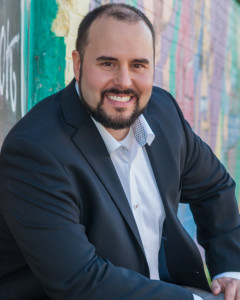 1) What part of your composition style/compositions do you feel is the most influenced by your unique experience as a countertenor?
1) What part of your composition style/compositions do you feel is the most influenced by your unique experience as a countertenor?
Well first off, my training as a classical singer comes out in the prominence of melodic lines in my compositions. Whether I am composing for piano or orchestra or whatever, a lyrical, singable line is strongly present. Being a countertenor specifically, I have had the chance to perform a whole lot of early music and have worked with and learned from leaders in Medieval, Renaissance, and Baroque performance. The music that really fascinates me uses modes instead of the major/minor scales classical music, and that has influenced my melodic and harmonic language immensely. To get a little dorky, I have a penchant for modal cadences of thirds rather than classical cadences of fifths. There is a duet toward the end of the opera that is in a sort of D major mode, and the harmonic progress ends with F-sharp minor to D major harmony, as opposed to a traditional cadence that would go from A major to D major. Another characteristic of my music that comes directly from my early music performance experience is my use of cross-relations, where a pitch of two different qualities would sound at the same time or in quick succession. So at the end of Thyrsis’ aria at the beginning of the work, he ends holding a C sharp in an A major chord, and then the piano quickly cadences to the B-Dorian/Phrygian mode mixture I’d been playing with. Thyrsis is sustaining his C sharp, the piano creates a harsh dissonance by hitting C natural against it. This collision of pitches is built into lyrical melodic lines that disguise their conflict, but it creates an affect for the listener of things not being settled, of things not quite joining together. In Thyrsis & Amaranth, these cross-relations hint that the love story isn’t going to work out so well for Thyrsis as he ambiguously relates his feelings for Amaranth to her.
2) How did Thyrsis and Amaranth come to be?
The idea of writing Thyrsis & Amaranth came when I stumbled across Ned Rorem’s set of mini-operas based on fables of Jean de la Fontaine. Some of Fontaine’s fables are retellings of Aesop’s fables, and many were familiar to me, like “The Ant and the Grasshopper” or “The Fox and the Grapes,” stories on which Rorem focused. Fontaine also created many original fables that included human characters for the amusement of the French court, and I found some of these human stories to be timeless, like the unwitting and awkward mistakes most of us have made in pursuing a lover, as Thyrsis does here. I originally thought of the work as a modern version of the Baroque pastoral cantata, and I composed it as a series of arias, duets, and linking recitatives modeled on something Handel or Charpentier might compose. A mezzo-soprano friend looked at it when I was close to done and told me this wasn’t a concert work like a cantata but that it was begging to be done on the operatic stage. I think she was right. Hopefully the OOO audiences think so too!
3) What do you find the most exciting about composing? Does it compare to how you feel when you perform?
I think the most exciting thing about composing is collaborating with musicians who are bringing my work to life. Composers have to balance multiple personalities. I have my private, creative persona that needs solitude to compose— to think about what I’m working on, planning and formulating ideas. This can be very dull and sometimes quite lonely. Another side of the composer is the person who wants to share with a public and be out with people creating music and impacting audience’s emotions. This is where the real fun begins, working with people to bring music to life. I get so energized over this. I particularly love hearing ideas and interpretations brought to my music that maybe I hadn’t envisioned.
As a performer, the interaction and gratification of music-making is immediate. I can sing an aria, sense the audience reacting or not reacting, adjust in the moment, and then meet audience members afterward and hear how they were impacted by my performance, face to face. I love the immediacy. That interaction is so different in composing. I compose in a bubble, wanting to share something with people. It will be months or more until a work is presented to an audience. I might have completely failed to communicate what I was hoping to, but I won’t find out until after a performance. For example, the Austin Symphony premiered my work An Invocation this past February. I wrote that tone poem in 2012 and here it is 2016 having its first performances. Communicating with an audience can become very prolonged. That said, I’ve always feared as a singer that I am only as good as my last audition or impressive as my last performance. As a composer, I can take my time to craft a work, and once it’s finished it can possibly last beyond my lifetime, which is also scary to think about, like those bands that are haunted by their one hit and have to perform it over and over again!
4) Where do you think the “future of opera” might be headed?
It’s hard to tell where opera is going, but it’s exciting to see that opera is getting more and more support from communities in the United States. I think diversity is an important trend in opera right now. Opera has been trending toward telling the stories of individuals and groups that have been on the fringe of American society but that have been an integral part of the fabric of this country. I hope this trend continues because I’ve got some operatic subjects to tackle. I’ve been tackling these current topics in non-operatic works such as a recent choral song cycle, Like a Darling, premiered in Seattle in March, I set the poetry of a Naomi Shihab-Nye, a Palestinian-American poet living and working in San Antonio, which is her reaction to terrorist bombings in Lebanon in the 1990s. While my first operatic venture Thyrsis & Amaranth is a historical throwback in form, I’ve included a gender-bending male lead that I think speaks to assumptions of what characteristics create masculinity or expressions of being a man in our society.
Steven Serpa, composer and countertenor, has earned his master’s degrees in music composition from the Hartt School and in early music performance from Longy School of Music, along with bachelor’s degrees in vocal performance and musicology from the University of Rhode Island. As a countertenor, Steven has been featured as soloist in works ranging from the Ordo Virtutum of Hildegard von Bingen to Puccini’s Tosca and Bernstein’s Chichester Psalms. He has been heard as a soloist in many baroque masterworks such as Monteverdi’s Orfeo, Handel’s Messiah and Bach’s Johannes-passion. Recently Steven has debuted with the Austin Baroque Orchestra and will help close their season as a soloist in Handel’s Esther. In addition, he has performed with Opera Providence, Opera Boston, the Boston Academy of Music, the Vox Consort, and the Arcadia Players, among other ensembles, and in such festivals as the Newport Music Festival, the Boston Early Music and the Amherst Early Music Festivals. He is an avid proponent of art song and vocal chamber music, commissioning new works for countertenor and giving annual recitals. He has been guest lecturer on the topic of the countertenor voice and American art song at the Hartt School, Longy School of Music, and Coker College, giving lecture-recitals and master classes.
As a composer, Steven’s vocal, choral and chamber works have been performed throughout the United States and Canada. His one-act opera, Thyrsis & Amaranth, based on a fable by Jean de la Fontaine, was premiered by Hartford Opera Theater and recently produced by Halifax Summer Opera. Other recent stage collaborations include music to a staged version of Pride & Prejudice and dance works for choreographers in New York City and Hartford. Steven was recently recognized for his outstanding choral writing as the winner of the Cerddorion Vocal Ensemble’s annual Emerging Composers Competition and was named a finalist for the American Prize in Choral Composition. His choral cantata Heaven’s Birds: Lament and Song was written in collaboration with North Carolina poet Jeffery Beam to commemorate World AIDS Day for a benefit concert for the AIDS Action Committee of Boston. Other recent commissions include a woodwind quintet, Images des film de Jean Cocteau, for the Hartt School, a violin/harp duo, shadow-list songs, the Rhode Island-based new music series Providence Premieres, and a new work for oboe and strings, An Invocation, which will be premiered by the Austin Symphony Orchestra in their upcoming 2015-2016 season. Current projects for Steven include a choral song cycle for the Boston-based vocal ensemble Zefiro and a sonata for oboe and piano to be presented at a future conference of the American Double Reed Society. He studied composition with Tom Cipullo in New York City, with Stephen Gryč at the Hartt School of Music, and is currently working toward his doctorate in music composition at the Butler School of Music of the University of Texas at Austin.
